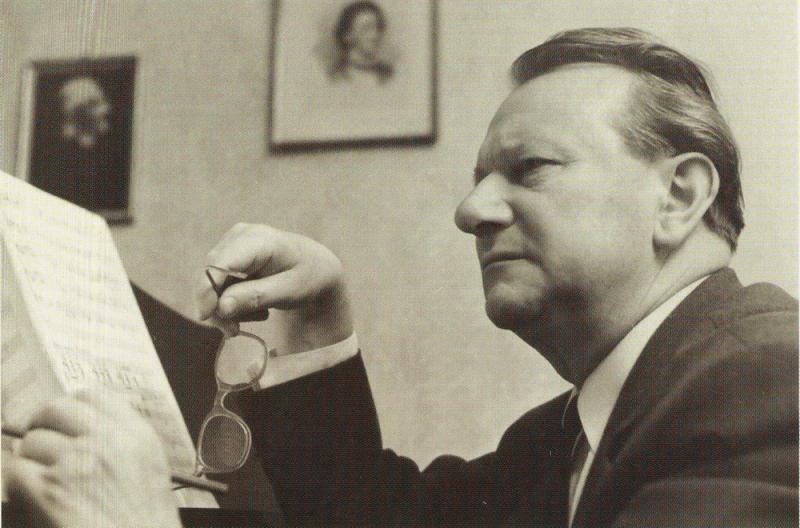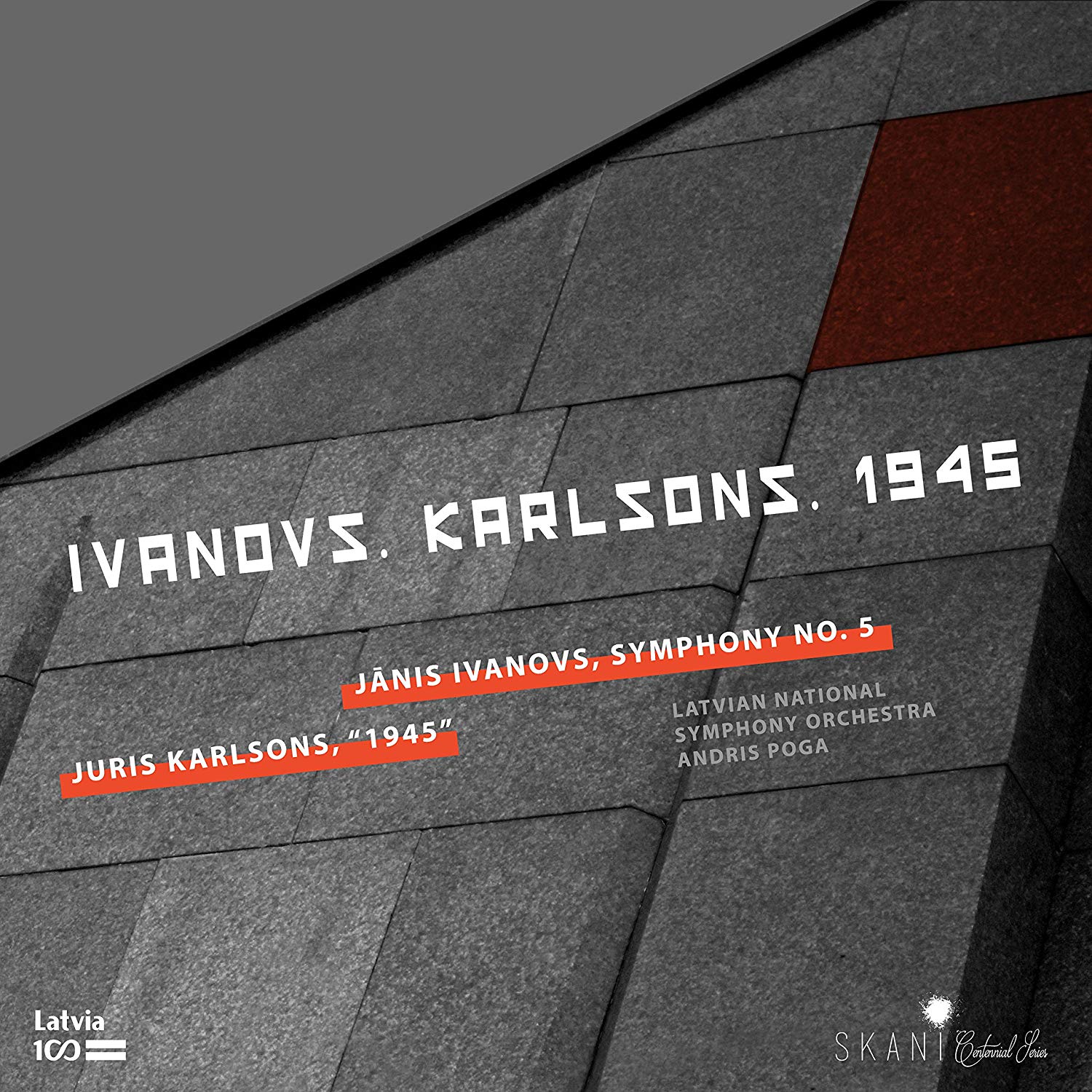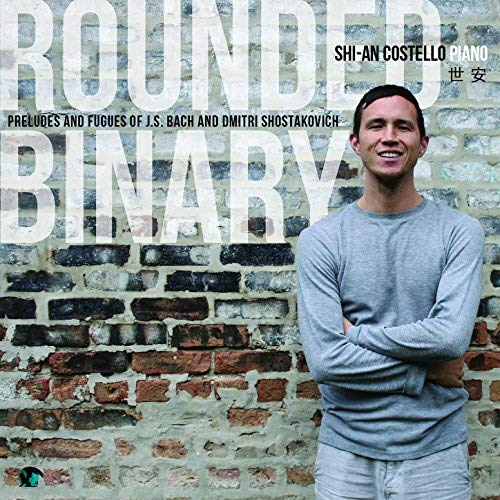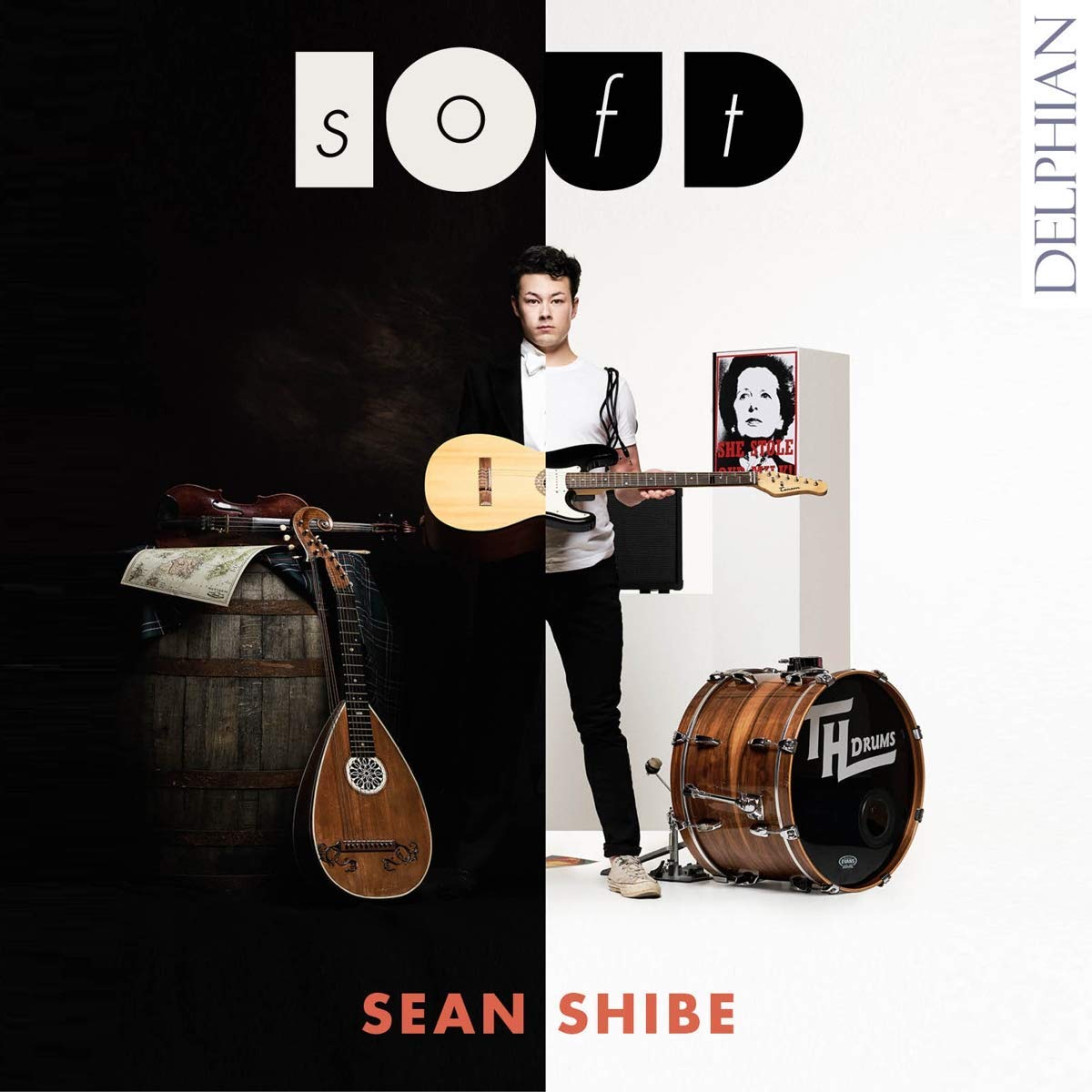Classical CDs Weekly: Ivanovs, Shi-An Costello, Sean Shibe | reviews, news & interviews
Classical CDs Weekly: Ivanovs, Shi-An Costello, Sean Shibe
Classical CDs Weekly: Ivanovs, Shi-An Costello, Sean Shibe
Latvian orchestral music, mischievous pianism, plus a guitarist of two halves

 Jãnis Ivanovs: Symphony No. 5; Juris Karlsons: Music for Symphony Orchestra 1945 Latvian National Symphony Orchestra/Andris Poga (Skani)
Jãnis Ivanovs: Symphony No. 5; Juris Karlsons: Music for Symphony Orchestra 1945 Latvian National Symphony Orchestra/Andris Poga (Skani)
Jãnis Ivanovs’ promising conducting career was kyboshed by the outbreak of war and the Soviet invasion of Latvia. After Riga’s liberation in October 1944, it's believed that Ivanovs was responsible for broadcasting one of the five surviving records belonging to the reactivated state radio station, and his Symphony No. 5 was completed during the following spring. Asked about the symphony's meaning, Ivanovs replied that the music “contained everything that had accumulated over those years.” The official reception was initially positive, though by 1948 the Soviet censors condemned the symphony: “…there are no folk melodies… elements of Western jazz are offered with delight and relish… it is against the people.” Which will probably make you want to listen to it all the more.
Ivanovs 5 is indeed a terrific large-scale piece. Shostakovich is an audible influence, though Ivanovs’ themes are less clear cut and his orchestration is heavier. It’s a dark wartime symphony par excellence; you can understand it making the critics nervous. The fleeting glimpses of sunlight are all the more powerful as a result: I'm thinking of the blowsy trumpet motif and lopsided waltz in the scherzo, or an oddly jaunty theme in the finale, replete with offbeat percussion. The final chords sound genuinely triumphant. The coupling is Juris Karlsons’s Music for Symphony Orchestra 1945. Born in 1948, Karlsons was a student of Ivanovs and completed the latter's final symphony after his death in 1983. This work was commissioned in 1985 to commemorate the ending of the Great Patriotic War, the numbers 1, 9, 4 and 5 woven into the musical material. Noisy, imposing and an unabashed crowd-pleaser, it's still impressive. Listen out for the accordion. An exemplary release: nicely packaged, well annotated and impeccably performed.
 Shi-An Costello: Rounded Binary: Preludes and Fugues of Bach and Shostakovich (Blue Griffin)
Shi-An Costello: Rounded Binary: Preludes and Fugues of Bach and Shostakovich (Blue Griffin)
Pianist Shi-an Costello’s "life goal" is “to be multitudinous and unified, contrasting with and complementary to oneself.” Hmm. There's not much musical information in his booklet note, but what he writes sort of makes sense, Costello aiming to link two stylistically different composers and their binary pairs of preludes and fugues with the “soft, rounded lines” of hyphens instead of oblique slashes. Maybe it's best just to listen: Costello’s imaginatively sequenced disc switches between preludes and fugues by Bach and Shostakovich, sometimes repeating numbers in contrasting performances. Bach’s BWV 846 Fugue in C is sliced into neat chunks, the final bars heard as the penultimate track. The results are occasionally like eavesdropping on a precocious student in a practice room, in a good way: I've rarely smiled so much during a piano recital.
Compare Costello's two readings of Bach's C major prelude, the second one twice as fast as the first. Both are deeply satisfying, the speeded-up version clearly articulated and full of life. He does the same with both halves of the Prelude and Fugue in B minor: the fast account dazzles and the slower one oozes gravitas. The Shostakovich numbers are equally good, the voices in the D major fugue ideally clear. Schumann’s Traumerei pops up in the middle, like a cinematic intermission. The best is saved to the end, Bach and Shostakovich ingeniously conjoined with a brilliant mash-up of both composer’s C major preludes: possibly the most enchanting little piano piece I've heard all year. Fascinating, and entertaining.
 Sean Shibe: softLoud (Delphian)
Sean Shibe: softLoud (Delphian)
Guitarist Sean Shibe’s second disc would work brilliantly as a vinyl LP, each side inhabiting a very different world. He gets through five centuries’ worth of material in less than an hour, and I'd recommend listening to it on CD in one sitting, without reading the notes beforehand. Shibe opens with his own transcriptions of ten Scottish pieces: a meltingly lovely Divertimento by one James Oswald and a sequence of eight numbers drawn from Scottish lute manuscripts, anonymous ditties straddling the divide between native folk culture and European art music. There are some exquisite things here: the tiny “Swit Sant Nickola” and “A Scots Tune”, both from the same source, are irresistible, the latter segueing perfectly into James MacMillan’s “From Galloway” and an intriguing “Motet I” taken from Since it was the day of Preparation… its mixture of old and new sounds suggesting Stravinsky's Agon.
And then it all kicks off, a multi-tracked Shibe switching to a Fender Stratocaster for an incisive reading of Steve Reich’s Electric Counterpoint, the last movement’s angular theme ideally clear. Reich himself describes this is as one of the work’s greatest recordings. He's right; and production-wise it's near-perfect, with every strand clear. The Reich won't prepare you for what follows. Nothing will. If you're sufficiently antediluvian to still possess an amplifier and speakers, crank them up and encourage your neighbours to go out. Julia Wolfe’s LAD was composed for nine bagpipes. It's unbelievably loud, Shibe gleefully recreating the massed pipes’ drone, creating a stark wall of sound that’s simultaneously exhilarating and terrifying. David Lang’s Killer ends proceedings with a sharp, savage punch. This disc works on so many levels. Shibe's playing is predictably excellent, and it's fun to hear him electrified. It's also an expression of rage at the political events of 2016 and a celebration of quiet musical beauty. Buy the disc. Read the sleeve notes. Smile at the sleeve photo.
Explore topics
Share this article
The future of Arts Journalism
You can stop theartsdesk.com closing!
We urgently need financing to survive. Our fundraising drive has thus far raised £49,000 but we need to reach £100,000 or we will be forced to close. Please contribute here: https://gofund.me/c3f6033d
And if you can forward this information to anyone who might assist, we’d be grateful.

Subscribe to theartsdesk.com
Thank you for continuing to read our work on theartsdesk.com. For unlimited access to every article in its entirety, including our archive of more than 15,000 pieces, we're asking for £5 per month or £40 per year. We feel it's a very good deal, and hope you do too.
To take a subscription now simply click here.
And if you're looking for that extra gift for a friend or family member, why not treat them to a theartsdesk.com gift subscription?
more Classical music
 BBC Proms: Jansen, Royal Concertgebouw Orchestra, Mäkelä review - confirming a phenomenon
Second Prom of a great orchestra and chief conductor in waiting never puts a foot wrong
BBC Proms: Jansen, Royal Concertgebouw Orchestra, Mäkelä review - confirming a phenomenon
Second Prom of a great orchestra and chief conductor in waiting never puts a foot wrong
 BBC Proms: Royal Concertgebouw Orchestra, Mäkelä review - defiantly introverted Mahler 5 gives food for thought
Chief Conductor in Waiting has supple, nuanced chemistry with a great orchestra
BBC Proms: Royal Concertgebouw Orchestra, Mäkelä review - defiantly introverted Mahler 5 gives food for thought
Chief Conductor in Waiting has supple, nuanced chemistry with a great orchestra
 Dunedin Consort, Butt / D’Angelo, Muñoz, Edinburgh International Festival 2025 review - tedious Handel, directionless song recital
Ho-hum 'comic' cantata, and a song recital needing more than a beautiful voice
Dunedin Consort, Butt / D’Angelo, Muñoz, Edinburgh International Festival 2025 review - tedious Handel, directionless song recital
Ho-hum 'comic' cantata, and a song recital needing more than a beautiful voice
 Classical CDs: Dungeons, microtones and psychic distress
This year's big anniversary celebrated with a pair of boxes, plus clarinets, pianos and sacred music
Classical CDs: Dungeons, microtones and psychic distress
This year's big anniversary celebrated with a pair of boxes, plus clarinets, pianos and sacred music
 BBC Proms: Liu, Philharmonia, Rouvali review - fine-tuned Tchaikovsky epic
Sounds perfectly finessed in a colourful cornucopia
BBC Proms: Liu, Philharmonia, Rouvali review - fine-tuned Tchaikovsky epic
Sounds perfectly finessed in a colourful cornucopia
 BBC Proms: Suor Angelica, LSO, Pappano review - earthly passion, heavenly grief
A Sister to remember blesses Puccini's convent tragedy
BBC Proms: Suor Angelica, LSO, Pappano review - earthly passion, heavenly grief
A Sister to remember blesses Puccini's convent tragedy
 BBC Proms: A Mass of Life, BBCSO, Elder review - a subtle guide to Delius's Nietzschean masterpiece
Mark Elder held back from blasting the audience with a wall of sound
BBC Proms: A Mass of Life, BBCSO, Elder review - a subtle guide to Delius's Nietzschean masterpiece
Mark Elder held back from blasting the audience with a wall of sound
 BBC Proms: Le Concert Spirituel, Niquet review - super-sized polyphonic rarities
Monumental works don't quite make for monumental sounds in the Royal Albert Hall
BBC Proms: Le Concert Spirituel, Niquet review - super-sized polyphonic rarities
Monumental works don't quite make for monumental sounds in the Royal Albert Hall
 Frang, Romaniw, Liverman, LSO, Pappano, Edinburgh International Festival 2025 review - sunlight, salt spray, Sea Symphony
Full force of the midday sea in the Usher Hall, thanks to the best captain at the helm
Frang, Romaniw, Liverman, LSO, Pappano, Edinburgh International Festival 2025 review - sunlight, salt spray, Sea Symphony
Full force of the midday sea in the Usher Hall, thanks to the best captain at the helm
 Elschenbroich, Grynyuk / Fibonacci Quartet, Edinburgh International Festival 2025 review - mahogany Brahms and explosive Janáček
String partnerships demonstrate brilliant listening as well as first rate playing
Elschenbroich, Grynyuk / Fibonacci Quartet, Edinburgh International Festival 2025 review - mahogany Brahms and explosive Janáček
String partnerships demonstrate brilliant listening as well as first rate playing
 BBC Proms: Akhmetshina, LPO, Gardner review - liquid luxuries
First-class service on an ocean-going programme
BBC Proms: Akhmetshina, LPO, Gardner review - liquid luxuries
First-class service on an ocean-going programme
